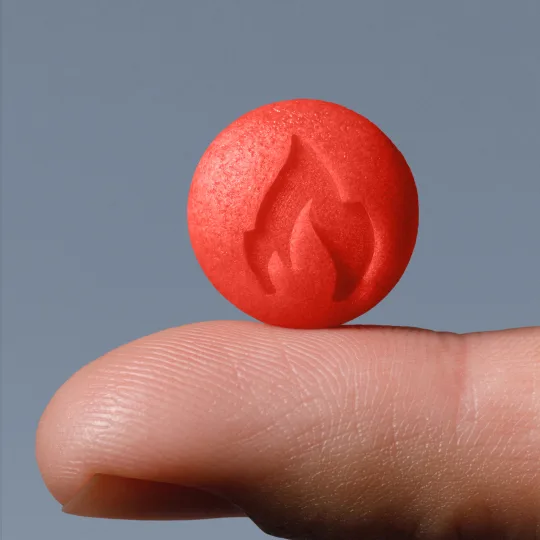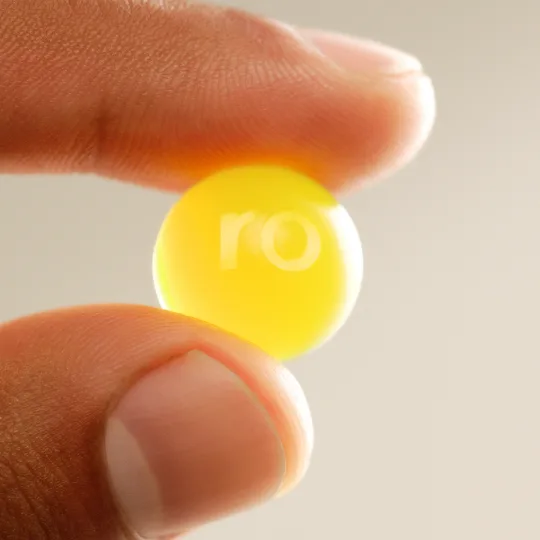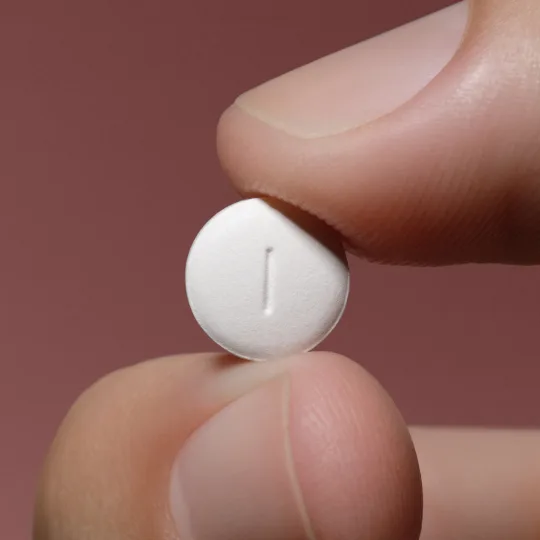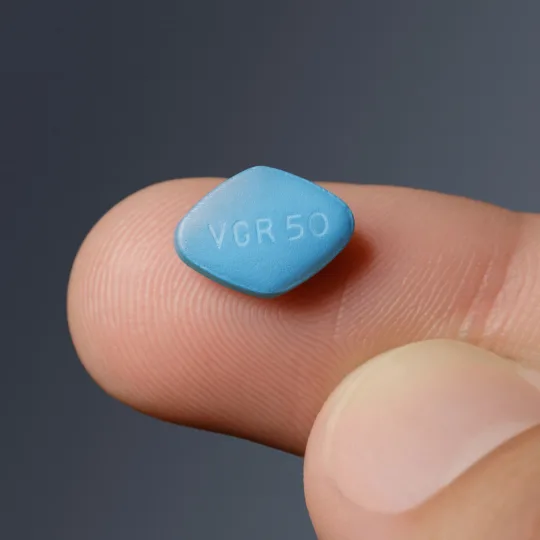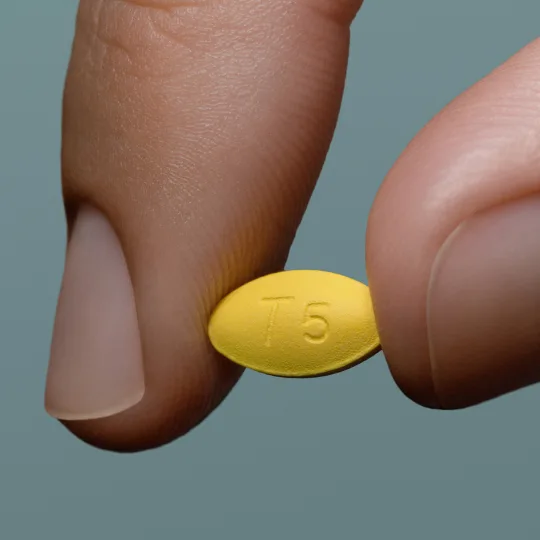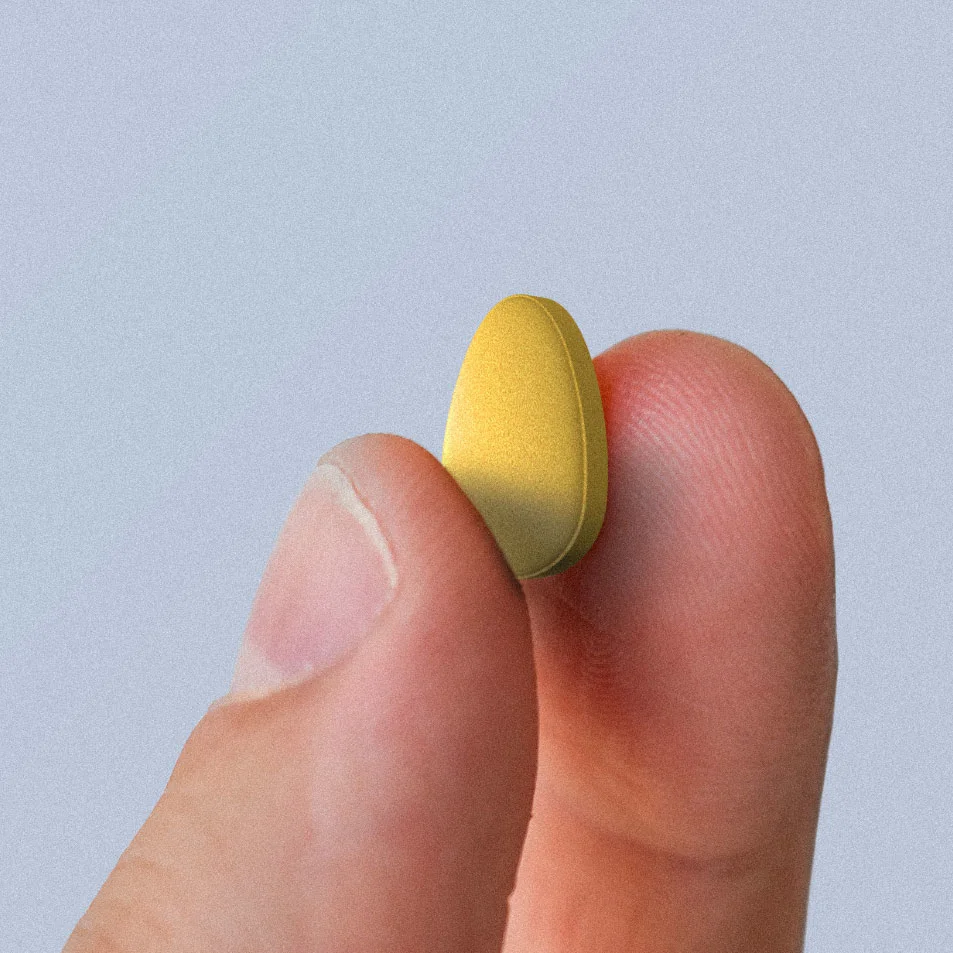Key takeaways
For optimal results, take Viagra on an empty or light stomach 30 minutes to four hours before you have sex or at least two hours after eating, as high-fat meals can slow down its absorption.
While Viagra can remain active in your system for up to four hours, it only works when combined with sexual arousal.
Taking more than one dose per day likely won't improve results but could increase side effects.
If you're looking for a faster-acting alternative, Ro Sparks is a dissolvable treatment combining sildenafil and tadalafil that can work in as little as 15 minutes and last up to 36 hours.
Common myths about making traditional Viagra work faster—such as chewing the pill or placing it under your tongue—aren’t recommended, as the pill is designed to be swallowed whole.
Here's what we'll cover
Key takeaways
For optimal results, take Viagra on an empty or light stomach 30 minutes to four hours before you have sex or at least two hours after eating, as high-fat meals can slow down its absorption.
While Viagra can remain active in your system for up to four hours, it only works when combined with sexual arousal.
Taking more than one dose per day likely won't improve results but could increase side effects.
If you're looking for a faster-acting alternative, Ro Sparks is a dissolvable treatment combining sildenafil and tadalafil that can work in as little as 15 minutes and last up to 36 hours.
Common myths about making traditional Viagra work faster—such as chewing the pill or placing it under your tongue—aren’t recommended, as the pill is designed to be swallowed whole.
Getting the most out of Viagra (sildenafil) isn't just about taking a pill—it's about understanding how to optimize its effectiveness for your personal needs.
While millions of individuals rely on this trusted erectile dysfunction (ED) medication, many aren't aware that factors like timing, food choices, and even what you drink can significantly impact how well it works.
The medication works by increasing blood flow to help achieve firmer, more reliable erections, but its success depends on various other factors that are within your control.
Let's explore everything you need to know about how to use Viagra for best results, from timing your dose to understanding what can help (or hinder) its effectiveness.
7 tips on how to use Viagra for best results
To get the best results from Viagra, take it about one hour before having sex, preferably on an empty stomach, or at least two hours after eating. Viagra works when combined with sexual stimulation and should not be taken more than once per day.
The standard starting dose is 50 mg, but it may be adjusted between 25 mg and 100 mg based on how you tolerate the medication. Some people may start at different dosages based on individual factors such as other medications they are taking, age, or other medical conditions.
Here’s a quick summary of what you should keep in mind when taking Viagra to get the best results:
Take it at the right time: Viagra is most effective when taken 30 minutes to four hours before sex.
Avoid heavy meals: A high-fat meal can slow down absorption and delay its effects.
Take Viagra with water: Other beverages can delay absorption. If you are planning to drink alcohol, it would be best to keep consumption on the lower side.
Sexual stimulation is required: Viagra doesn’t cause an automatic erection—you need to be aroused for it to work.
Take the right dosage: Always take Viagra as directed by your healthcare provider. You should not take more of the medication than the prescribed dose, and you should only take Viagra once per day.
Be mindful of drug interactions: Certain medications (like nitrates or alpha-blockers) can cause side effects. This is why it’s important to disclose all medication medications you are taking to your healthcare provider.
Maintain a healthy lifestyle: Regular exercise, managing stress, and addressing underlying health conditions can improve overall erectile function.
Have better sex with Ro
The best time to take Viagra: 30–60 minutes prior to sexual activity
Viagra works best when taken at the right time before having sex. Regardless of the dose—25 mg, 50 mg, or 100 mg—the general timing guidelines remain the same.
The best way to take Viagra is about 30 minutes before sex to allow it to be absorbed into the bloodstream. It typically reaches peak effectiveness 30–60 minutes after taking it. However, its effects can last up to four hours, so you don’t have to rush too much to, err, get it on before the clock runs out.
The time it takes to get and maintain an erection can vary from person to person. According to studies, some may notice the effects of Viagra in just 12 minutes, and for others, it may take up to 30 minutes to kick in.
It's important to stick to the recommended dosage—no more than one dose per day—since taking more is unlikely to improve its effects and could increase the risk of side effects.
How long Viagra lasts in your body may depend on your age, kidney or liver function, and if you’re taking certain other medications. In these situations, your healthcare provider may recommend a different dosage of Viagra to adjust for differences in how your body processes the medication.
If you're unsure about when to take Viagra before sex or the ideal dosage, your healthcare provider can help you determine the best approach.
Viagra with food: it works faster if you don’t eat first
When taken on an empty stomach, Viagra is absorbed more efficiently and reaches its highest concentration in the blood within 30–60 minutes. Viagra can be taken with or without food, but eating right before taking it—particularly a high-fat meal—can delay how quickly it starts working.
While the medication can still be effective, the time it takes to reach peak levels in the bloodstream may be extended, meaning you may have to wait longer before experiencing its effects.
Studies have found that Viagra can affect how your stomach processes food. It can reduce the stomach’s ability to expand and relax after eating, which can make you feel full sooner. It can also slow down digestion, meaning both food and medication stay in your stomach longer before moving into the intestines, where they’re absorbed.
As a result, Viagra may take longer to start working if taken with a meal, especially one that’s heavy or high in fat, which can delay stomach emptying in and of itself.
The best time to take Viagra with meals
For the fastest results, Viagra should be taken on an empty stomach or at least two hours after a meal. If you need to eat soon before taking it, choosing a low-fat meal may help reduce delays in absorption.
Keep in mind that when you’re taking Viagra, you don’t need to worry about skipping meals—just be mindful of when and what you eat before taking Viagra. A high-fat meal, like a cheeseburger and fries, may push back how long it takes to work by up to an hour.
But if you take Viagra after something lighter, like grilled chicken with vegetables, any delay may be much shorter.
Viagra with drinks
What you drink when taking Viagra can affect how quickly it works and whether you experience side effects. Some beverages may slow absorption, while others can increase the risk of unwanted effects.
Here’s how different drinks can interact with Viagra and what to keep in mind when choosing what to sip when throwing back the pill.
Taking Viagra with water is ideal
Water is the best choice for taking Viagra. One of the common side effects of Viagra is stomach discomfort or indigestion (dyspepsia).
For some people, this might make sexual activity uncomfortable. Viagra is a phosphodiesterase type 5 (PDE5) inhibitor, a type of medication that works in part by relaxing smooth muscle tissue in the body. While the goal is to target penile tissue, the lower esophageal sphincter (LES), the muscle that prevents stomach acid from flowing back into the esophagus, may also be affected.
According to studies, this relaxation can increase the chance of acid reflux or heartburn. Drinking water when taking Viagra can help reduce the risk of irritation in the esophagus and support quicker absorption of the medication.
If stomach upset is a problem, talk to your healthcare provider—they may suggest an antacid or adjust your dosage.
Taking Viagra with milk has mixed results
There is no direct interaction between Viagra and milk, meaning it shouldn’t make the medication ineffective or unsafe. However, compared to other beverages and varieties of milk, whole milk contains a higher amount of fat, and high-fat meals or drinks have been shown to delay Viagra absorption.
Viagra already slows digestion, meaning food and fluids stay in the stomach longer before being absorbed. Whole milk, which is high in fat, can delay absorption further, potentially increasing the time it takes for Viagra to kick in and work.
If you’re lactose intolerant, drinking milk with Viagra may also increase bloating, nausea, or acid reflux—all of which can inhibit sexual activity. (I mean, who wants to get it on when they’re feeling gassy and bloated?)
If you prefer to take Viagra with milk, a low-fat or skim option may reduce these effects.
Avoid taking Viagra with juices
Drinking certain juices—especially grapefruit juice—can change how your body processes Viagra and increase the risk of side effects.
Viagra is broken down in the liver by an enzyme called CYP3A4. Grapefruit juice blocks this enzyme, which can cause higher-than-normal levels of Viagra in your bloodstream. This may make side effects like headaches, flushing, dizziness, and low blood pressure more likely or more intense.
While grapefruit juice is the biggest concern, other citrus juices, like pomelo and pomegranate juice, might have similar effects.
To be safe, avoid grapefruit juice while taking Viagra. If you regularly drink fruit juice and aren’t sure if it could affect your medication, talk to your healthcare provider.
Taking Viagra with alcohol is best in moderation
While it’s safe to drink a small amount of alcohol with Viagra, doing so may make it more difficult to get an erection. Alcohol is a depressant that affects many different systems in the body, including those involved in producing an erection.
Heavy drinking is defined as more than 8 drinks per week for women and more than 15 drinks per week for men. A standard drink includes:
12 oz of beer (5% alcohol)
5 oz of wine (12% alcohol)
1.5 oz of spirits/liquor (40% alcohol)
If you’re planning to take Viagra, consider limiting your alcohol intake that day to ensure the medication can work as expected. Having one or two drinks occasionally is generally fine, but if you’re unsure, check with your healthcare provider for personalized guidance based on your health history.
What can you do if Viagra is not working?
If you’re feeling frustrated about Viagra not working, remember that there are many reasons this might happen, and there are things you can try that could help—small adjustments can often make a big difference.
Before giving up on the medication, consider these steps:
Make sure you’re taking the right dose: Generally, the starting Viagra dosage for treating ED is 50 mg. Of course, you may be prescribed a different starting dose based on individual factors such as other medications you are taking, your age, and other health conditions. Your healthcare provider may adjust it between 25 mg and 100 mg based on how you respond to the medication. Never adjust the dosage yourself or take more than one dose per day, as this can increase the risk of side effects.
Time it right: Viagra should be taken about 30–60 minutes before sex. If you take it and don’t feel any effects right away, give it time—it can stay active in your system for up to four hours.
Avoid excessive alcohol: Drinking too much can lower blood pressure and reduce blood flow, making it harder for Viagra to do its job. If you drink heavily, consider cutting back to see if that improves your results.
Check for medication interactions: Some medications, including certain blood pressure drugs, antidepressants, and nitrates, can interfere with Viagra’s effectiveness. Keep your healthcare provider in the loop about all medications and supplements that you’re taking so they can make sure Viagra can be a safe and effective treatment for your ED. In addition to the aforementioned drugs, antifungals like ketoconazole, some HIV medications, and antibiotics like erythromycin can also negatively interact with Viagra. If you’re taking this type of medication, your healthcare provider may limit your dosage of Viagra to a maximum of one dose every two or three days. Be sure to follow their instructions.
Make sure you’re sexually stimulated: Viagra only works when you’re aroused. If anxiety or stress is interfering, focusing on relaxation techniques—like deep breathing, mindfulness, or a calm environment—may help.
If Viagra doesn’t work the first time, don’t stress—it doesn’t necessarily mean it won’t work for you at all. Sometimes, feeling anxious or unsure can get in the way. Try taking it again the next time you plan to have sex and see if you’re more at ease, which can make a difference. You could also try taking it on a day you have no such plans and check how it works in your body on your own (though, remember, you do need some form of sexual stimulation to check its effects). This may help take the pressure off as well.
If you’ve checked all these boxes and still aren’t getting the results you want, do not adjust your Viagra dose on your own. Talk to your healthcare provider; they can evaluate your dosage and determine whether any underlying conditions may be affecting the medication’s effectiveness.
How can you improve your overall health for better Viagra results?
Viagra can help improve erectile function, but for the best results, overall health matters too. Strong erections depend on good blood flow, so anything that disrupts circulation—like high blood pressure, obesity, or smoking—can increase your risk of ED.
Regular physical activity plays an important role in supporting blood flow. Research suggests that people who get at least 150 minutes of physical activity per week are less likely to experience ED than those who are sedentary.
A large, multi-year study found that obesity nearly doubles a person’s chances of developing ED. Obesity is also a risk factor for type 2 diabetes, which can damage nerves and blood vessels throughout the body. This includes those that supply the penis, which can result in ED.
Finally, certain lifestyle habits—like smoking, excessive alcohol consumption, and a poor diet—can also contribute to ED. These behaviors may increase inflammation and reduce nitric oxide production, both of which are important for relaxing blood vessels and allowing proper blood flow to the penis.
If you’re wondering how to enhance Viagra effects if Viagra isn’t working as well as expected, addressing underlying health factors may help improve results. Making small, consistent changes to your routine doesn’t just have the power just to support better erections—it can also benefit your overall wellbeing.
Can you make Viagra work faster? Myths debunked
If Viagra isn’t working as quickly as you’d like, you’ve probably searched online for ways to speed things up (you’re here, after all).
While plenty of so-called tricks claim to make Viagra work faster, there’s no way to speed up the process if you’re already taking the medication as prescribed. Let’s clear up some common myths.
Does chewing Viagra make it work faster?
A common question is, “Do you chew Viagra?” The answer is no. These pills are not made to work that way and should be swallowed as a whole, as recommended by the manufacturer of the medication.
Does Viagra work faster under the tongue?
When it comes to the formulations approved by the US Food and Drug Administration (FDA), Viagra (and its generic counterpart, sildenafil) are usually swallowed whole. However, there are sublingual (under the tongue) options on the market that contain sildenafil and other PDE-5 inhibitors.
One such example is Ro Sparks, which is a sublingual prescription treatment that contains sildenafil and tadalafil (the active ingredients of Viagra and Cialis) for faster, longer-lasting effects. Always take your medication the way it’s supposed to be taken. If you’d like a different formulation of it, talk to your healthcare provider about potential options.
Does Viagra increase your sex drive?
Viagra can increase people’s confidence when it comes to having sex, which may help make it easier to get in the mood. However, the way it works in the body does not have direct effects on libido or on hormones like testosterone.
Sexual arousal is needed for the pill to do its job. If you struggle with low libido or mismatched libido with a partner, speak to your healthcare provider. They may refer you to a sex therapist or explore other options to increase your sex drive.
What are the side effects of Viagra?
When taken as directed, Viagra is generally safe and effective, though some people may experience mild side effects. The most common include headache, nasal congestion, and facial flushing. Some users also report indigestion or acid reflux, but overall, Viagra tends to be well-tolerated by most people. While serious side effects can occur, they are uncommon.
You should discuss any medications or treatments you’re currently using and any underlying health conditions with your healthcare provider before taking Viagra. This includes heart conditions (such as a history of heart attack or heart failure), stroke, stomach ulcers, and prostate issues.
Viagra can also interact with certain medications, including:
Antifungal drugs like ketoconazole or itraconazole
Nitrate medications like nitroglycerin
HIV treatments like ritonavir
If you have a painful erection that lasts more than four hours (aka priapism), seek emergency medical care immediately. Leaving it untreated can cause lasting damage to the tissue in your penis.
Since side effects and drug interactions vary from person to person, it’s essential to review your full medical history with your healthcare provider. Taking Viagra with certain medications can increase the risk of side effects.
Additionally, sexual activity can put a strain on the heart, so if you have a history of high or low blood pressure, heart disease, or other cardiovascular conditions, your provider may recommend monitoring your blood pressure or adjusting your dosage to ensure safe use. You should also double-check that you are cleared for sexual activity before you try Viagra, especially if you have an extensive cardiac history.
Now, what do you do if you’ve tried Viagra and aren’t getting the results you want even after trying all these things? Consult your healthcare provider, as they’re best equipped to help find a treatment that’s a fit for you. That being said, if Viagra isn’t an option for you, then you might want to consider these other options…
Faster-acting Viagra alternatives
If you’re looking for a faster-acting alternative to Viagra, consider trying Ro Sparks. This 2-in-1 treatment combines the active ingredients in Viagra (sildenafil) and Cialis (tadalafil) into a single dissolvable medication that can work in as little as 15 minutes and can last up to 36 hours.
Since it’s a sublingual treatment (meaning it goes under your tongue), the active ingredients are absorbed directly through blood vessels in the mouth. This can allow for quicker absorption and can eliminate delays caused by food or digestion compared to traditional oral ED medications that are not dissolvable.
While this specific combination is not FDA-approved as a single product, both active ingredients are FDA-approved for treating ED.
Ro Sparks is available through Ro’s online platform, making it easy to connect with a licensed healthcare provider and get prescribed treatment from the comfort of your own home. After completing a medical consultation, your prescription (if appropriate) can be shipped directly to your door in discreet packaging.
Plus, Ro offers free, unlimited follow-ups with healthcare providers to ensure your treatment plan works for you.
Other ED treatment options
Not all ED medications work the same for everyone. If one treatment isn’t giving you the results you want, switching to another option may make a difference.
Studies suggest that up to 50% of people who don’t initially respond to one PDE5 inhibitor see improvement with another.
Here are some additional Viagra alternatives that you might consider and discuss with your healthcare provider—after all, they all require an Rx:
Cialis (tadalafil): A long-lasting ED treatment that can remain effective for up to 36 hours, allowing for more flexibility and spontaneity. It can be taken as needed before sexual activity or as a lower daily dose for continuous effectiveness.
Sildenafil: The active ingredient in Viagra, sildenafil works similarly to the brand-name version but is often available at a lower cost. It can typically start working within 30 minutes and can last up to four hours. If Viagra didn’t work well for you, though, you may want to try something other than sildenafil because sildenafil and Viagra have the same active ingredient.
Vardenafil: Previously sold under the brand-name Levitra, vardenafil is a PDE5 inhibitor that helps improve erectile function. It has a rapid onset of action, with some people experiencing results as quickly as 16 minutes after taking it (though others report it takes 30 minutes or more to take effect), and its effects can last up to five hours.
Stendra (avanafil): The fastest-acting PDE5 inhibitor, Stendra can start working in as little as 15 minutes and can remain effective for up to six hours. It also may be less affected by food compared to other ED medications.
Daily Rise Gummies: These are fruit-flavored gummies containing 7 mg of tadalafil (the active ingredient in Cialis). They’re designed to be taken once daily, allowing the medication to build up in your system, which can provide more flexibility and eliminate the need to plan around a pill.
The right treatment for you depends on your body, lifestyle, and health profile. A healthcare provider can help you explore options and adjust your treatment plan until you find the one that works best.
Bottom line
Getting the best results from Viagra isn’t just about taking a pill—it’s about knowing how to use Viagra for the best results and when to take it for maximum effectiveness.
Timing matters when it comes to taking Viagra. Most people see the best effects when taking it on an empty stomach 30–60 minutes before sex or at least two hours after eating.
Avoiding high-fat meals and heavy alcohol use can also help ensure Viagra works as expected.
If Viagra doesn’t work the first time, know that this is not unusual. Finding the right approach—whether it’s adjusting the timing, dosage, or addressing other health factors—can make a big difference.
If you’re looking for a faster-acting or longer-lasting alternative, Ro Sparks is a dissolvable option combining sildenafil and tadalafil that can work in as little as 15 minutes and can last up to 36 hours. While it is not FDA-approved, it contains ingredients that are individually FDA-approved for the treatment of erectile dysfunction. Talking to a healthcare provider can give you a clearer picture of what’s best for you and help you find a treatment plan that works.
Frequently asked questions (FAQs)
When is Viagra most effective?
Viagra often works best when taken on an empty stomach 30 minutes to four hours before sex or at least two hours after eating. While it remains active for up to four hours, that doesn’t mean an erection lasts that long—sexual stimulation is still required for it to work. (In fact, experiencing an erection that lasts four hours or more is called priapism and requires emergency medical attention).
Eating a heavy or high-fat meal before taking Viagra can slow absorption, causing it to take longer to kick in. For the most consistent results, plan ahead and take it at the right time.
How does Viagra work to treat ED?
Viagra can treat ED by helping increase blood flow to the penis, which can make it easier to get and maintain an erection when sexually aroused. It works by inhibiting an enzyme called phosphodiesterase type 5 (PDE5). This helps relax the blood vessels in the penis, allowing for better erection-promoting blood flow.
However, Viagra doesn’t cause an erection on its own—you still need sexual stimulation for it to work.
How long does Viagra last?
Viagra can usually work for up to four hours, but this can vary from person to person. It reaches peak effectiveness about an hour after you take it, and then its effects gradually start to fade.
The drug stays in your system longer, but its impact becomes weaker over time.
Some people assume Viagra can help you last longer, but it doesn’t directly affect stamina or help delay ejaculation. Its primary role is to improve blood flow for erections, not to extend the duration of sex.
If premature ejaculation is a concern, other treatments may be more suitable, including topical options that help numb sensation to allow you more control over your ejaculation.
How can you make sildenafil more effective?
If sildenafil (either the generic version or the active ingredient in Viagra) isn’t working as well as you’d like, a few adjustments may help. Taking it on an emptier stomach can improve absorption, as food—especially a high-fat meal—can slow down how quickly it starts working.
Giving it 30–60 minutes to take effect and making sure you’re sexually aroused is also important, as sildenafil (or Viagra) won’t cause an erection on its own.
If you’re following all the instructions and still not seeing results, talk to your healthcare provider—they may adjust your dosage or check for other factors that could be affecting its effectiveness.
How long before sex should you take Viagra?
For best results, Viagra should be taken 30–60 minutes before sex. While it reaches peak effectiveness within an hour, it can remain active for up to four hours, allowing for some flexibility.
However, it won’t work instantly, and sexual stimulation is necessary for an erection to occur. If you don’t notice effects right away, don’t take another dose—give it time to be absorbed and take effect. If you would like to consider changing the medication you are taking or your dosage, discuss this with your healthcare provider.
DISCLAIMER
If you have any medical questions or concerns, please talk to your healthcare provider. The articles on Health Guide are underpinned by peer-reviewed research and information drawn from medical societies and governmental agencies. However, they are not a substitute for professional medical advice, diagnosis, or treatment.
Viagra Important Safety Information: Read more about serious warnings and safety info.
Cialis Important Safety Information: Read more about serious warnings and safety info.
References
Bacon, C. G., Mittleman, M. A., Kawachi, I., et al. (2006). A prospective study of risk factors for erectile dysfunction. The Journal of Urology, 176(1), 217–221. doi: 10.1016/S0022-5347(06)00589-1. Retrieved from https://pubmed.ncbi.nlm.nih.gov/16753404/
Carbone, F. & Tack, J. (2018). The effect of sildenafil on gastric motility and satiation in healthy controls. United European Gastroenterology Journal, 6(6), 846–854. doi: 10.1177/2050640618766933. Retrieved from https://pmc.ncbi.nlm.nih.gov/articles/PMC6047290/
Centers for Disease Control and Prevention (CDC). (n.d.). About standard drink sizes. Retrieved from https://www.cdc.gov/alcohol/standard-drink-sizes/index.html
Eardley, I., Ellis, P., Boolell, M., et al. (2002). Onset and duration of action of sildenafil for the treatment of erectile dysfunction. British Journal of Clinical Pharmacology, 53 Suppl 1(Suppl 1), 61S–65S. doi: 10.1046/j.0306-5251.2001.00034.x. Retrieved from https://pmc.ncbi.nlm.nih.gov/articles/PMC1874251/
Eli Lilly and Company. (2023). Cialis (tadalafil) tablets, for oral use: Highlights of prescribing information. Retrieved from https://pi.lilly.com/us/cialis-pi.pdf
Huang, S. A. & Lie, J. D. (2013). Phosphodiesterase-5 (PDE5) Inhibitors In the Management of Erectile Dysfunction. P & T: A Peer-Reviewed Journal for Formulary Management, 38(7), 407–419. Retrieved from https://pmc.ncbi.nlm.nih.gov/articles/PMC3776492/
Jetter, A., Kinzig-Schippers, M., Walchner-Bonjean, M., et al. (2002). Effects of grapefruit juice on the pharmacokinetics of sildenafil. Clinical Pharmacology and Therapeutics, 71(1), 21–29. doi: 10.1067/mcp.2002.121236. Retrieved from https://pubmed.ncbi.nlm.nih.gov/11823754/
Janiszewski, P. M., Janssen, I., & Ross, R. (2009). Abdominal obesity and physical inactivity are associated with erectile dysfunction independent of body mass index. The Journal of Sexual Medicine, 6(7), 1990–1998. doi: 10.1111/j.1743-6109.2009.01302.x. Retrieved from https://pubmed.ncbi.nlm.nih.gov/19453892/
Leslie S. W. & Sooriyamoorthy T. (2024). Erectile Dysfunction. StatPearls. Retrieved from https://www.ncbi.nlm.nih.gov/books/NBK562253/
Maiorino, M. I., Bellastella, G., & Esposito, K. (2015). Lifestyle modifications and erectile dysfunction: What can be expected? Asian Journal of Andrology, 17(1), 5–10. doi: 10.4103/1008-682X.137687. Retrieved from https://pubmed.ncbi.nlm.nih.gov/25248655/
Nichols, D. J., Muirhead, G. J., & Harness, J. A. (2002). Pharmacokinetics of sildenafil after single oral doses in healthy male subjects: absolute bioavailability, food effects and dose proportionality. British Journal of Clinical Pharmacology, 53 Suppl 1(Suppl 1), 5S–12S. doi: 10.1046/j.0306-5251.2001.00027.x. Retrieved from https://pmc.ncbi.nlm.nih.gov/articles/PMC1874258/
Saito, M., Hirata-Koizumi, M., Matsumoto, M., et al. (2005). Undesirable effects of citrus juice on the pharmacokinetics of drugs: focus on recent studies. Drug Safety, 28(8), 677–694. doi: 10.2165/00002018-200528080-00003. Retrieved from https://pubmed.ncbi.nlm.nih.gov/16048354/
Smith, B. P. & Babos, M. (2023). Sildenafil. StatPearls. Retrieved from https://www.ncbi.nlm.nih.gov/books/NBK558978/
U.S. Food and Drug Administration. (2014). Highlights of prescribing information: Levitra (vardenafil hydrochloride) tablets, for oral use. Retrieved from https://www.accessdata.fda.gov/drugsatfda_docs/label/2014/021400s017lbl.pdf
U.S. Food and Drug Administration. (2018). Highlights of prescribing information: Stendra (avanafil) tablets, for oral use. Retrieved from https://www.accessdata.fda.gov/drugsatfda_docs/label/2018/202276s018lbl.pdf
U.S. Food and Drug Administration. (2017). Highlights of prescribing information: Viagra (sildenafil citrate) tablets, for oral use. Retrieved from https://www.accessdata.fda.gov/drugsatfda_docs/label/2017/020895s048lbl.pdf


